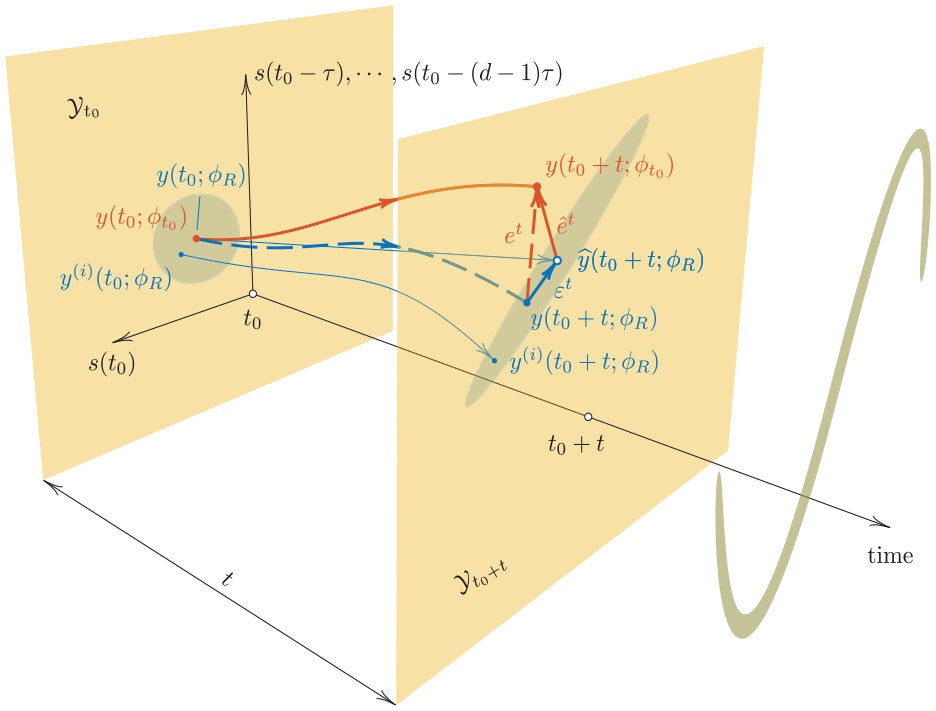Our paper titled “Geometry-informed phase space warping for reliable fatigue damage monitoring” was published online by the Structural Health Monitoring. Here’s the abstract:
This paper presents a new fatigue damage detection and monitoring approach using a geometry-informed implementation of phase space warping (PSW). The proposed method is based on continuous-time PSW theory and geometric constructs, which clarifies the relationship between the deformation of the reconstructed phase flow and the underlying damage evolution. A discrete-time approximation to the continuous-time theory is established for practical applications. The practical geometry-informed PSW(GIPSW) algorithm is developed with integrated geometry-informed heuristics and global sensitivity analysis to monitor fatigue damage evolution accurately. The proposed method is validated through numerical experiments simulating nonlinear systems with varying fatigue damage dynamics, exhibiting distinct response complexities. The results show that the GIPSW improves the monitoring accuracy by at least 41.4% and can achieve maximally four-orders-of-magnitude-lower monitoring error compared with the conventional PSW algorithm. The GIPSW is also applied in physical experiments exploring raster-angle-affected fatigue damage dynamics in 3D-printed materials. The estimated hidden-fatigue damage-time history reveals distinct crack propagation rates differentiated by the raster angles and can be used for damage prognosis and modeling the fatigue mechanisms. The critical inflection points identified in the incremental damage-time histories detect the crack growth phase transitions as early as 0.17 of the total time to failure, which can be used for early damage awareness.

